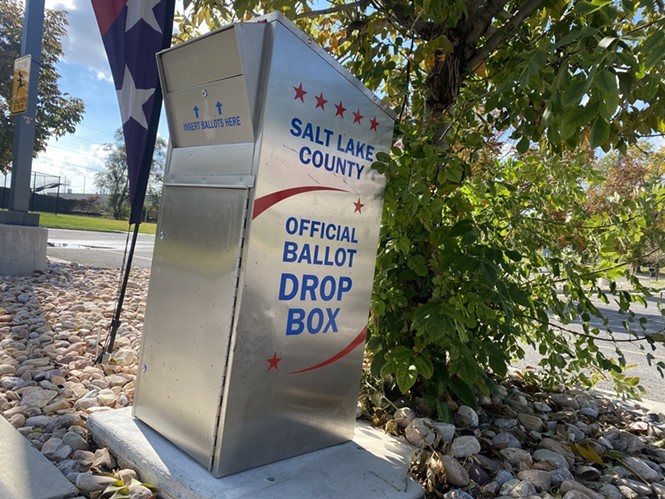
- Benjamin Wood
- Bills under consideration at the Utah Legislature would see voters deciding whether to cut grocery sales taxes.
A quirk of Utah's state constitution long targeted by lawmakers for removal could meet its end in November 2024 if voters accept a bargain to cut sales taxes on groceries.
Under two bills—both of which moved forward on Wednesday—lawmakers would drop the state's share of food taxes. But that change would be contingent on public ratification of a constitutional amendment to remove the so-called "education earmark," which sees all income tax revenue reserved for public school funding.
The Legislature previously expanded the income tax earmark to include higher education and, more recently, programs serving children and individuals with a disability. But even with those allowances, lawmakers say they remain constrained in adequately funding state initiatives using only the sales tax-based General Fund and gas tax-based Transportation Fund.
"We can't take the sales tax off food because we don't have the ability to use other revenue sources to pay for things that people care about," said Sen. Ann Millner, R-Ogden. "They care about social services, they care about public safety, they care about parks and recreation, they care about water and roads."
On Wednesday, HB101 (cutting food taxes) passed the House in a 57-15 vote. And the Senate Revenue and Taxation Committee voted 5-1 to advance SJR10 (removing the constitutional earmark) to the full Senate.
The question of whether to cut food taxes has been a cause célèbre at the Capitol since 2020, when lawmakers hastily backtracked on a failed attempt at tax reform. In late 2019—after months of performative town halls and public debate—legislation passed in special session cutting income taxes and boosting sales taxes in an effort to "balance" the General and Education Funds.
Public backlash to the reform package was swift, vocal and atypically broad, drawing grassroots support from across the political spectrum and the involvement of commercial entities, particularly the Harmons grocery chain. One month after the legislation's passage—and shortly after a referendum campaign cleared the signature hurdle for ballot access—lawmakers repealed their changes to the tax code.
"This is a hard issue that we get caught in all the time," Millner said on Wednesday. "Sometimes you just need to let the people decide."
Groups like the Utah Education Association have fought efforts to dilute the income tax earmark, pointing to the state's consistent ranking among the least-funded public schools in the nation as evidence that a constitutional guarantee is necessary. General Fund dollars can already be spent on schools if lawmakers choose to do so, meaning the fundamental effect of removing the earmark would be to free up Education Fund revenue for non-education purposes.
Sen. Kathleen Riebe, D-Cottonwood Heights and a professional educator, said she would like to see funding formulas specified in the legislation to ensure resource prioritization for schools. And she objected to the way the tax changes are combined, comparing it to a bill passed at the start of the 2023 legislative session that bundled teacher pay raises with private school vouchers.
"I think the income tax being attached to the food tax is two different things. That is frustrating people," Riebe said. "We feel like we're being held hostage again."
But proponents of the change suggest that the earmark is an antiquated and inefficient constraint on spending. Riverton Republican Sen. Dan McCay—who's sponsoring the amendment to end the earmark—said removing what's left of the wall between the General and Education Funds positions the state to better respond to volatility between different taxes over time.
"I think, in a lot of ways, this is going to be good for the education community in the long term. And it's going to be good for the Legislature," McCay said. "It's just [a matter of] trying to convince our community partners."
Senate President Stuart Adams, R-Layton, said that public education will continue to be prioritized in the budget independent of whether tax revenue is combined or remains siloed.
"We can spend—and we have spent—sales tax General Fund money on education," Adams said, "so I’m not sure what the earmark does."